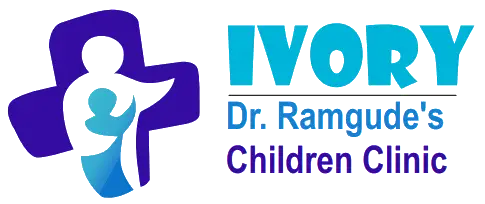Services
Home : : Services : : Growth and Development
Medical Services:
Walk into our Ivory Dr. Ramgude's Children Clinic
- Mon - Sat (Morning) 9:30AM - 2:00PM
- Mon - Sat (Evening) 5:30AM - 9:30PM
- Sunday 9:30AM - 2:00PM

Child Growth & Development
Child growth and development is a fascinating and complex topic that encompasses physical, cognitive, emotional, and social changes that occur from infancy through adolescence. Understanding these processes can be essential for parents, caregivers, educators, and anyone involved in the care and support of children.
Here’s a simple overview of the key aspects:
Physical Growth: Children grow rapidly in their early years. Newborns double their birth weight by around six months and triple it by their first birthday. Regular check-ups with a pediatrician help monitor their growth and ensure they’re on track.
Motor Skills: Babies start with basic reflexes and gradually develop fine and gross motor skills. They learn to roll over, crawl, stand, and walk. Encourage this development by providing a safe and stimulating environment.
Cognitive Development: Children’s brains are like sponges, soaking up information. They begin to explore the world through their senses, learning about objects, people, and their environment. Simple games and activities like peek-a-boo help nurture cognitive growth.
Language Development: Babies start babbling and making sounds early on. As they grow, they begin to understand and imitate words. Reading to your child, talking to them, and providing a rich language environment can boost their language skills.
Social and Emotional Development: Building relationships is a significant part of growing up. Children form attachments to caregivers and learn to express their emotions. Encourage healthy emotional expression and provide a secure and loving environment.
Play: Play is a child’s work. Through play, children develop problem-solving skills, creativity, and social abilities. It’s an essential part of their growth and development.
Education: As children reach school age, they start formal education. This phase is crucial for cognitive development, as they learn to read, write, and solve math problems.
Puberty: As children enter adolescence, they undergo significant physical and emotional changes. Hormones surge, leading to puberty. Understanding and supporting your child during this period is vital.
Independence: As children grow older, they seek more independence. Encourage them to make age-appropriate choices and learn from their experiences.
Individuality: Every child is unique. They have their own interests, strengths, and challenges. Recognizing and celebrating their individuality is important for healthy development.
Physical Growth: Children grow rapidly in their early years. Newborns double their birth weight by around six months and triple it by their first birthday. Regular check-ups with a pediatrician help monitor their growth and ensure they’re on track.
Motor Skills: Babies start with basic reflexes and gradually develop fine and gross motor skills. They learn to roll over, crawl, stand, and walk. Encourage this development by providing a safe and stimulating environment.
Cognitive Development: Children’s brains are like sponges, soaking up information. They begin to explore the world through their senses, learning about objects, people, and their environment. Simple games and activities like peek-a-boo help nurture cognitive growth.
Language Development: Babies start babbling and making sounds early on. As they grow, they begin to understand and imitate words. Reading to your child, talking to them, and providing a rich language environment can boost their language skills.
Social and Emotional Development: Building relationships is a significant part of growing up. Children form attachments to caregivers and learn to express their emotions. Encourage healthy emotional expression and provide a secure and loving environment.
Play: Play is a child’s work. Through play, children develop problem-solving skills, creativity, and social abilities. It’s an essential part of their growth and development.
Education: As children reach school age, they start formal education. This phase is crucial for cognitive development, as they learn to read, write, and solve math problems.
Puberty: As children enter adolescence, they undergo significant physical and emotional changes. Hormones surge, leading to puberty. Understanding and supporting your child during this period is vital.
Independence: As children grow older, they seek more independence. Encourage them to make age-appropriate choices and learn from their experiences.
Individuality: Every child is unique. They have their own interests, strengths, and challenges. Recognizing and celebrating their individuality is important for healthy development.
Walk into our Ivory Dr. Ramgude's Children Clinic
- Mon - Sat (Morning) 9:30AM - 2:00PM
- Mon - Sat (Evening) 5:30AM - 9:30PM
- Sunday 9:30AM - 2:00PM
